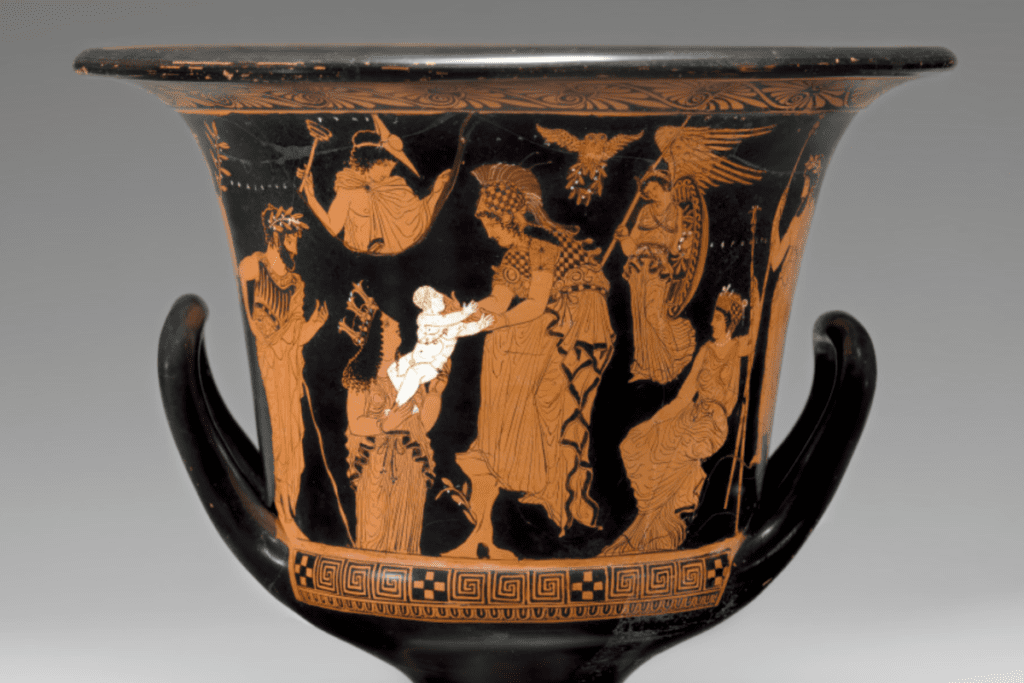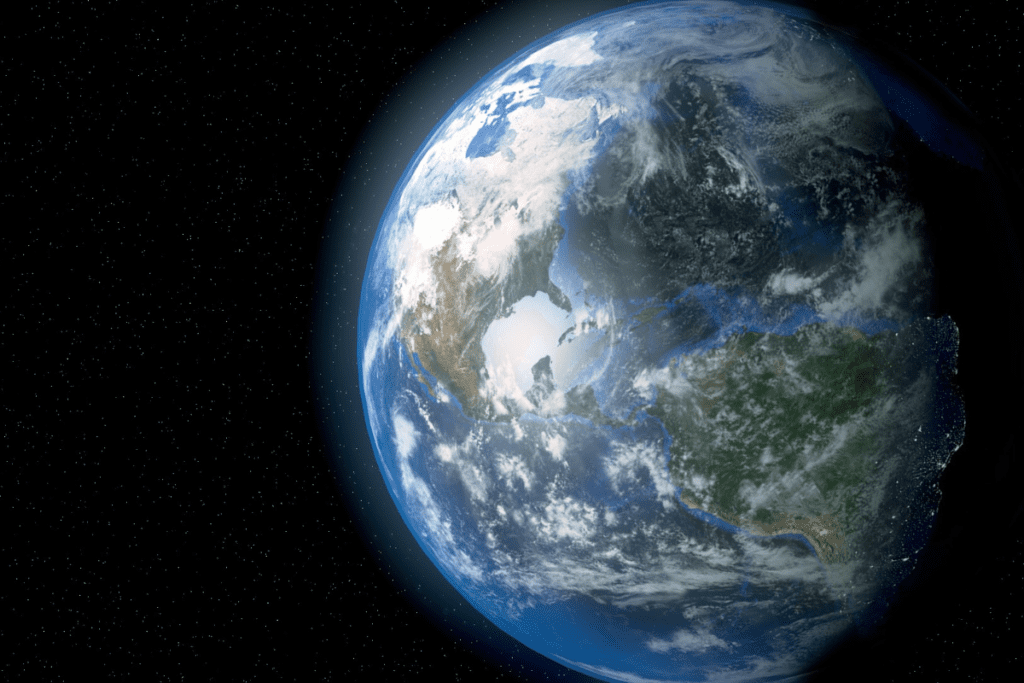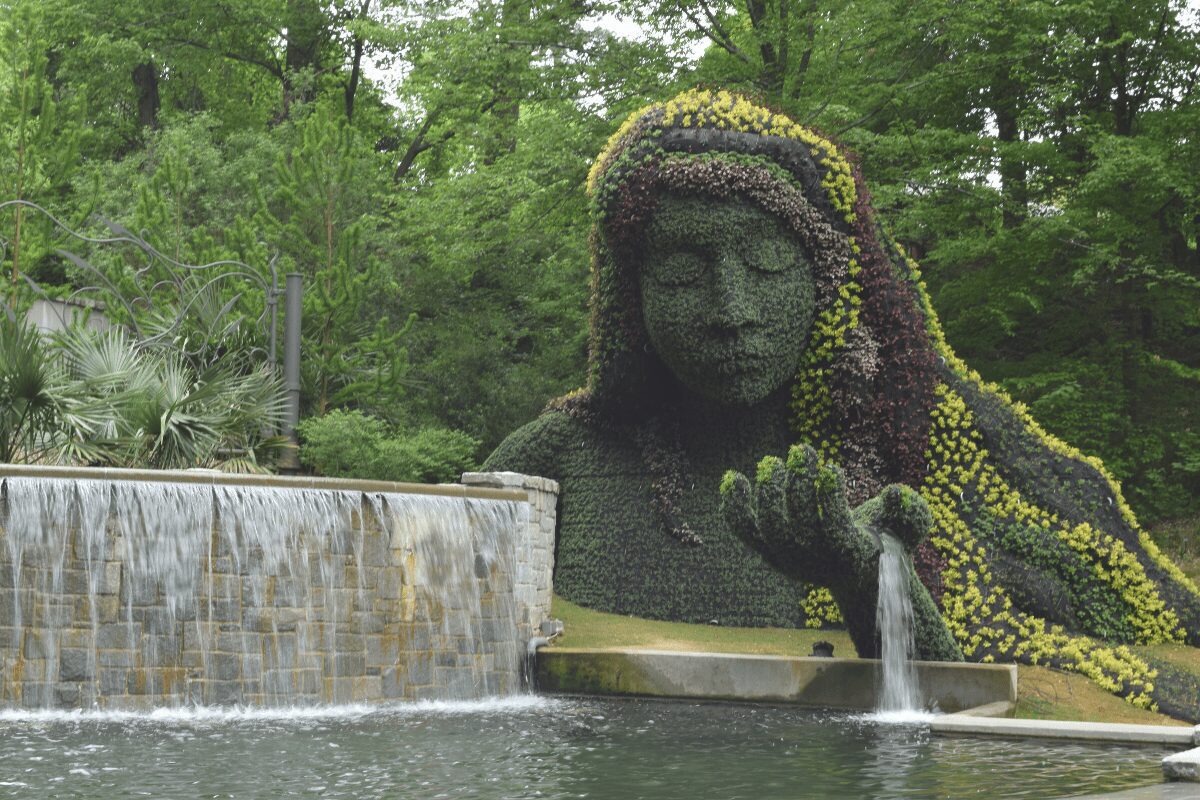During my first year as a student of the Mt Shasta Goddess Temple, I followed the Temple’s devotional calendar, a 12-month cycle of Goddess devotion. This year, I am building my own. The Temple dedicates September to Magu, the Chinese Taoist Immortal of longevity, prophecy, history, and hemp. I’m dedicating my month to Gaia, the Greek primordial goddess of the Earth.
Who is Gaia?
Gaia, which means land or earth, is one of the Greek primordial deities. They are the first generation of gods and goddesses that represent the physical foundations and fundamental forces of the world.
Hesiod’s Theogony tells us that Gaia arose after Chaos, the mythological void. She parthenogenetically gave birth to Heaven (Ouranos), the Sea (Pontus), and the Mountains (Ourea). Afterwards, with her son-husband Ouranos, Gaia gave birth to the Titans and other children. She is also the mother of the first humans, who were born directly from her body.
Gaia is at the centre of the ancient Greek creation story. She also played an essential role in the castration of her husband Ouranos and the War of the Titans. Gaia later rebelled against Zeus. The men in her life always tried to eliminate her sons (their competition).
In addition to being the mother of gods and mortals, Gaia is the mother of monsters, mythical beasts, and all forms of life, and the one who nurtures them. The Homeric Hymn XXX. To Earth the Mother of All, begins, “I will sing of well-founded Earth, mother of all, eldest of all beings. She feeds all creatures that are in the world, all that go upon the goodly land, and all that are in the paths of the seas, and all that fly: all these are fed of her store.”
As the mother of plants, Gaia is associated with the rape of Persephone (she made the flowers that Persephone picked grow), the metamorphosis of figures such as Daphne into trees, and herbal witchcraft. As the goddess of the Earth, Gaia is elemental earth–soil, rocks, caverns, and chasms. Several stories describe Gaia hiding children in her caverns to protect them. The earth is also associated with buried treasures and, therefore, wealth. The stones of the earth are also the “bones of Mother Earth”, and Gaia is a chthonic deity associated with the rotting of the dead.
Artists depicted Gaia as a matronly woman half-risen from the earth, and there is a head of Gaia in the Istanbul Archaeology Museums. Gaia doesn’t seem to have much of a cult despite her representation and myths. She was found mainly alongside Demeter, who appears to have subsumed any cult worship she might have once had. Gaia even shares some of her epithets and titles with Demeter, such as Anesidora (“sender of gifts”), Eurysternus (“broad-bosomed”), and Calligeneia (“beautiful birth”).

Chaos, beauty, and deep wisdom
September has been a perfect month to dedicate to Gaia. After a few busy months, September began with a quiet trip to Uluru. Gaia is quiet, red sand, a bit of sandstone you can see, and so much more than can’t be seen. You can find moments in nature that are still and quiet, and Gaia is that, but she is also shifting rock, an earthquake, and a volcano. She is nature always moving, dying and emerging, generative, ever-renewing life. It’s spring here in Australia, and I’ve been watching flowers blooming, birds returning, and the famous live stream of the 367 Collins Falcons has been switched on once again (my favourite reality TV show).
Gaia is many things to me, including chaos and even cruelty. I’m personally familiar with some of it. As I write this, Cuba, the country of my birth, is recovering from a category 5 hurricane, and Hurricane Ian is pummelling Florida, where I was raised, and my family and many friends reside. But mostly, Gaia is peace, home, and nourishment. When I say peace, I’m referring to the image of our beautiful planet from space–oceans, land, clouds. From up there, you might not guess what havoc we’re wreaking down here; it’s just her beauty. She is home no matter where I go and a source of nourishment both physically and spiritually. There is little more refreshing and sustaining than spending time in nature.

Climate change
My month with Gaia has been about slowing down, spending time with her, and observing and celebrating the seasonal changes around me. It’s also been about learning more about the planet and climate change.
I don’t know if we’re destroying the planet, but we’re certainly making it harder for ourselves and other species to live and thrive. The earth’s climate is changing quickly, and the effects are far-reaching. These range from environmental changes such as melting ice caps, rising sea levels, and extreme weather events to the impacts on economies and human health, such as changing disease patterns.
I think that my husband and I are good environmental stewards. We own one car, grow some of our veggies, compost, buy energy-efficient products, avoid plastics, recycle and repurpose, buy secondhand, clean up public spaces, donate to conservation causes, and so forth. Of course, we could be better, but I don’t feel too guilty about the areas we’re lacking in because it’s reasonable to sometimes give greater weight to our needs and capacity, and we still seek opportunities to improve. But also, I question whether we’ll ever be able to do as much as the biggest polluters, such as Chevron, Exxon, BP, and Shell, could do. The more significant burden should be on corporations, not ordinary people, despite having a collective responsibility.
Bad Pagan
I admit that I might be a bad Pagan regarding nature. I enjoy hiking and the outdoors generally, but I don’t love camping; I hate “roughing it”. I admire my Pagan friends who have left the city to live in the country on farms, grow their food and raise their animals, but I could never be that person. Between the country witch and the urban temple priestess, the latter has always resonated more with me. But there are many ways to be a Pagan, and I try not to let perfect be the enemy of good.
Gaia holds deep wisdom. After all, she is about 4.543 billion years old. This month is all about listening and connecting with that wisdom.


“Between the country witch and the urban temple priestess, the latter has always resonated more with me. But there are many ways to be a Pagan, and I try not to let perfect be the enemy of good.” I love this, and I can totally relate! I grew up in remote rural areas and choose to embrace the urban temple option!
Hii! My name is Kira and I’ve been questioning worshipping lady Gaia! I was wondering if you could list some credible resources (online as my parents don’t know I’m pagan) to learn more about? I made a mistake when I first started and barely did any research!if you could help I would be forever grateful !
Hi Kira, thanks for reaching out. It’s great that you want to learn more before going further on your path. Gaia was honoured in ancient Greece, especially at oracles and sanctuaries, and today Pagans connect with her both as a living goddess and as the sacred Earth itself. Two good places to start online are the Wikipedia page on Gaia and the Theoi Project’s entry on Gaia.